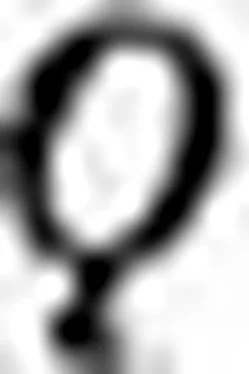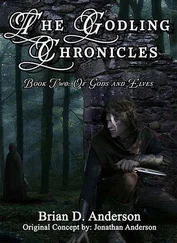Hilda Ellis Davidson - Gods and Myths of Northern Europe
Здесь есть возможность читать онлайн «Hilda Ellis Davidson - Gods and Myths of Northern Europe» весь текст электронной книги совершенно бесплатно (целиком полную версию без сокращений). В некоторых случаях можно слушать аудио, скачать через торрент в формате fb2 и присутствует краткое содержание. Жанр: История, на английском языке. Описание произведения, (предисловие) а так же отзывы посетителей доступны на портале библиотеки ЛибКат.
- Название:Gods and Myths of Northern Europe
- Автор:
- Жанр:
- Год:неизвестен
- ISBN:нет данных
- Рейтинг книги:5 / 5. Голосов: 1
-
Избранное:Добавить в избранное
- Отзывы:
-
Ваша оценка:
- 100
- 1
- 2
- 3
- 4
- 5
Gods and Myths of Northern Europe: краткое содержание, описание и аннотация
Предлагаем к чтению аннотацию, описание, краткое содержание или предисловие (зависит от того, что написал сам автор книги «Gods and Myths of Northern Europe»). Если вы не нашли необходимую информацию о книге — напишите в комментариях, мы постараемся отыскать её.
Gods and Myths of Northern Europe — читать онлайн бесплатно полную книгу (весь текст) целиком
Ниже представлен текст книги, разбитый по страницам. Система сохранения места последней прочитанной страницы, позволяет с удобством читать онлайн бесплатно книгу «Gods and Myths of Northern Europe», без необходимости каждый раз заново искать на чём Вы остановились. Поставьте закладку, и сможете в любой момент перейти на страницу, на которой закончили чтение.
Интервал:
Закладка:
Hilda Ellis Davidson
Gods and Myths of Northern Europe
Introduction
We will take heart for the future, Remembering the past.
T. S. ELIOT, The Rock
We are at last beginning to know and understand the value of the myth.
MIRCEA ELIADE, Myths, Dreams and Mysteries
The Myth-Makers
The mythology of a people is far more than a collection of pretty or terrifying fables to be retold in carefully bowdlerized form to our schoolchildren. It is the comment of the men of one particular age or civilization on the mysteries of human existence and the human mind, their model for social behaviour, and their attempt to define in stories of gods and demons their perception of the inner realities. We can learn much from the mythologies of earlier peoples if we have the humility to respect ways of thought widely differing from our own. In certain respects we may be far cleverer than they, but not necessarily wiser.
We cannot return to the mythological thinking of an earlier age; it is beyond our reach, like the vanished world of childhood. Even if we feel a nostalgic longing for the past, like that of John Keats for Ancient Greece or William Morris for medieval England, there is now no way of entry. The Nazis tried to revive the myths of ancient Germany in their ideology, but such an attempt could only lead to sterility and moral suicide. We cannot deny the demands of our own age, but this need not prevent us turning to the faith of another age with sympathetic understanding, and recapturing imaginatively some of its vanished power. It will even help us to view more clearly the assumptions and beliefs of our own time.
For centuries our children have been brought up on the myths of Greece and Rome. These have dominated our schoolrooms and inspired our poets, and in them there is much beauty and wisdom. We have largely neglected however the mythology of our own forbears, the Anglo-Saxons and Vikings who settled in the British Isles and worshipped their gods there before Christianity came. I believe this to have been to our considerable loss, since the northern peoples who created their own mythology should surely arouse as much interest and curiosity as those of the Mediterranean lands.
We know something of the qualities of these peoples from the literature which they have left behind, as well as from tales of their achievements recorded by outsiders. They had courage, vigour, and enthusiasm, an intense loyalty to kindred and leaders, and a keen appreciation of fair dealings between men. They had unusual respect for their women-folk, and at best their conception of marriage allowed for real cooperation and companionship between man and wife. They were great individualists – this was both their weakness and their strength – and resented any attempt to curb their freedom of action. Nevertheless they were capable of considerable self-discipline, and could accept adversity cheerfully, without whining or self-pity. A man who was prepared to die for what seemed to him important was held in honour, whether friend or enemy, and won even greater admiration if he could die with a jest on his lips.
We learn from their literature that they had a keen sense of the dignity of man, and of the sanctity of human relationships. The record of early Christian saints and scholars in Anglo-Saxon England – women as well as men – bears witness to their quick intelligence and aptitude for mystical thought as well as tough intellectual achievement. The group of ‘novels’ which we call the Icelandic Sagas shows appreciation of both tragedy and comedy in the lives of ordinary folk, at a time long before Hardy and Ibsen. In view of this, it seems worth while to discover what kind of myths were created and treasured by these people, these vigorous individualists who changed the history of western Europe by their achievements.
Unfortunately there are difficulties in the way, and to explain the nature of these something must be said of the history of heathenism in north-western Europe. At the time when Rome was supreme, the Germanic tribes were the barbarians on the outskirts of the Empire, sometimes resisting the Roman armies, sometimes working with them as allies. Rome had considerable influence on their way of life, but in language and in beliefs they seem to have remained largely untouched. When the Empire at last collapsed, the Germanic barbarians, most of them still heathen, pushed forward to overrun the rich lands no longer protected by the Roman armies. The time which we call the Migration period, from about the fourth to the sixth century after Christ, was one of continual movement and restlessness in western Europe. At this time the Angles and Saxons moved westward and took possession of England, bringing with them over the North Sea their heathen beliefs and practices. Elsewhere Franks, Vandals, Alamanni, Ostrogoths, Visigoths, and a score of lesser peoples were striving to find lands on which to settle and some degree of security for themselves and their sons in a bewildering world. As time went on, the independent bands of warriors under their princely leaders became fewer in number. They cancelled each other out, and little settled kingdoms became the order of the day. There was rivalry and strife between these kingdoms, and gradually one absorbed another, many small dynasties vanishing or becoming no more than legends. By the time the great nations emerged, and men thought of Anglo-Saxon England or Merovingian France as established powers, most of the Germanic peoples had given up their heathen beliefs and adopted Christianity.
At the end of the sixth century a little group of missionaries crossed the Channel to bring the Christian faith to Kent. Other Christian teachers were already working in the west of Britain, and before long the temples of the heathen gods were replaced by little churches of wood, brick, and stone, and carved crosses rose everywhere in honour of the Christian God. By A.D. 731 a brilliant Christian scholar in the new monastery of Jarrow in northern England, the man we know as the Venerable Bede, set out to write a book surveying the growth of the Faith from one end of England to the other. Though the heathen religion in Britain was not yet dead, its days were numbered. On the Continent most of the Germanic peoples had already rejected the old gods, with a few exceptions like the Saxons, the Frisians, and the Danes.
In Scandinavia the new Church was much longer gaining a foothold. Not until the tenth and eleventh centuries were the people of Norway converted by those doughty Christian kings, Olaf Tryggvason and Olaf the Holy. These two waged unceasing battle against the heathen gods, smashing their idols, burning their temples, and either driving out their followers or putting them to a painful death in the name of Christ. Some of those driven out settled in Iceland, where there were no kings and no persecution. But even in Iceland the fires of heathenism were dying down, and in the year 1000 the Icelandic Assembly, after a calm appraisal of the situation, decided for Christianity. Denmark too yielded to the persuasion of the missionaries, and when in 1015 Canute the Dane conquered England he was fully prepared to become a pillar of the Church. The Swedes were the most stubborn in their faithfulness to the heathen religion, but by 1164 a Christian bishop ruled in Uppsala, the old stronghold of Odin and Freyr.
Thus we see why we can learn comparatively little about the heathen myths from England and Germany, where Christianity was established early. We have to turn for information to Scandinavia, where a vigorous heathen population flourished for centuries after Augustine sailed for Kent, or to places in the north-west where the Scandinavian settlers left the marks of their influence.
Читать дальшеИнтервал:
Закладка:
Похожие книги на «Gods and Myths of Northern Europe»
Представляем Вашему вниманию похожие книги на «Gods and Myths of Northern Europe» списком для выбора. Мы отобрали схожую по названию и смыслу литературу в надежде предоставить читателям больше вариантов отыскать новые, интересные, ещё непрочитанные произведения.
Обсуждение, отзывы о книге «Gods and Myths of Northern Europe» и просто собственные мнения читателей. Оставьте ваши комментарии, напишите, что Вы думаете о произведении, его смысле или главных героях. Укажите что конкретно понравилось, а что нет, и почему Вы так считаете.












